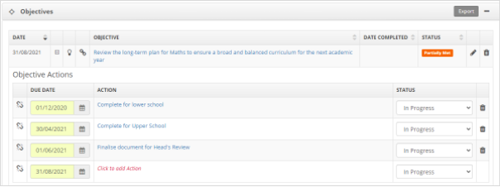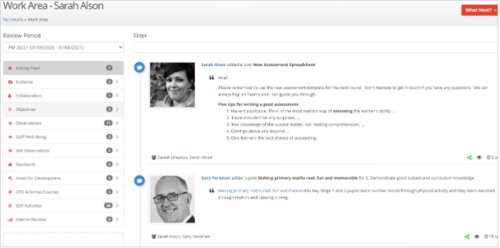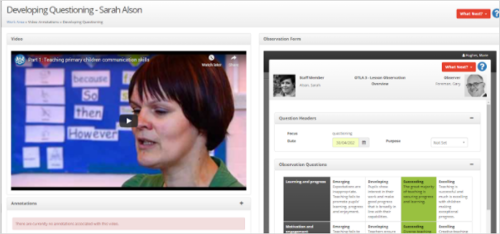 Damien Roberts
Damien Roberts
 Damien Roberts
Damien Roberts
Our lives are extremely busy, exhausting and sometimes overwhelming. We seem to be ‘on the go’ 24/7, with no quality time to stop and think. We naturally question ourselves and make comparisons with others, but there is a balancing act between the positivity of striving to improve, to better ourselves, and the negativity of self doubt, depression and insecurity.
Reflecting provides us with the opportunity to step back and take a look at our achievements, challenges and provides us with information on how to improve, learn new things, and share our thoughts and ideas with others. Our ability to step back from challenging or difficult situations gives us strength, knowledge and resilience for the next steps in our journey of life.
Our ability to successfully self-reflect has to be learnt and requires time to practice, to develop and refine the skill. Every person is unique and therefore everyone, as reflection is a deeply personal experience, needs to find their own way to successfully reflect as ‘one size does not fit all’.
The starting point of the self-reflection process always begins with asking ourselves the right questions to process who we are, what we do and how we think and feel. Examples of this may include:
The second is finding quality time and the right environment to reflect. For some it might be going for a run, while others it may be lying in a bath. There will always be those who initially say ‘ I haven’t got enough time’, but we always seem to find time for the things we want to do.
Key to a successful self reflective culture
The school environment, for some, can trigger negative emotions, stress, mood swings, fatigue and frustration. It is therefore important to have empathy towards a person and their feelings.
How are you going to show a self-reflective culture?
You can’t just tell someone ‘now is reflection time’ or ‘I gave you time to self reflect’. It needs to be modelled and the importance shown and successfully communicated in the behaviour of a person.
Reflection may, for some, feel uncomfortable, as it may reveal ‘home truths’. These reflections must be gradually released and not ‘bottled up’ and kept within. Staff need to feel safe, secure and supported, if they are to share openly and honestly about their thoughts and feelings.
We are naturally creative and therefore we must be willing to embrace and try new ideas. These ideas may bring a degree of risk and therefore there needs to be mutual understanding and a no-blame culture regarding things that have been attempted, but may not work. Not all new things will be successful and the process is about learning from how we act and what we do.
Staff need to feel empowered. Responsibility needs to be devolved so all staff are given opportunities to be challenged outside their own comfort area. They are expected to operate autonomously, evaluating their own and others’ performance and to contribute to their area and whole-school evaluations.
A commitment to improve themselves, by engaging in professional learning, and being willing to share successful ideas, but also their experiences, both successful and unsuccessful.
Good school communication, assessment and management processes need to be effective, to provide an overview, so it quickly can become evident what is successfully working and what is not. This overview and evaluation can seamlessly link into the school’s planning and improvement cycle which is underpinned by relevant and meaningful performance management.
Self-reflection is not just in your thoughts, but it is also in actions and can be seen as an important process to acknowledge our strengths, weaknesses and limits and turn them into purposeful actions.
How does iP support a self-reflective culture?
Individual staff members can take part in the self-reflective process in a variety of ways. SchooliP supports this by allowing them to:-
Adding Actions to Performance Management Objectives/Targets

An individual staff members’ objectives are usually set, discussed and signed off at the initial review meeting either face to face or online. At this point, each objective can be broken down into smaller, more manageable and easily digestible steps set for relevant dates. These are called objective actions. However, given the correct rights within the system, it’s recommended to also allow individuals to set their own objective actions throughout the review period. This allows ownership and accountability and helps staff to achieve their objectives.

Self-reflective forms
Using self-reflection forms, observations or surveys often inspires and motivates practitioners to make meaningful changes to their practice. Calibrating aspects of teaching and learning against a set of criteria helps teachers to understand themselves and learners better. By setting the self-reflection rights on a form, the teacher is given the opportunity to self-reflect, often alongside a peer, mentor or coach. Combining all provides powerful 360 degree qualitative feedback.
Just send in your forms to us and we will create them, taking into account the data you wish to analyse as a result. Carrying out any type of observation is simple and intuitive. Paper is removed from this process and the results are automatically collated. Information can be collated across the whole school for a wide overview. This can be filtered and refined to produce the exact data required, for example, departments, dates and particular self-reflective form.

Using a self-reflective blog
Why would a practitioner use the blogging tool? Many educationalists would say that one of the most effective ways to reflect on your own learning and teaching is by engaging in the best thinking activity – writing! What kind of a teacher are you? What kind of a learner? What is your teaching philosophy or style? What are your beliefs and preferences? Blogging will reveal your own story to you and anyone else you may wish to share this with and invite to comment.

Adding areas for development
Adding areas for development is a powerful tool for their own short-term practise and long term goals. The Areas for Development tools keeps all identified developmental points in one place and gives total clarity to the staff member and line manager.

Review and annotate recordings of their own or others’ teaching and learning
Many practitioners are now used to using video in their practice in one form or another. Many are now professionals at teaching over Zoom/Teams, recording teaching live or pre-recording to share with students.
Those with successful self-reflective programs embedded in their organisation also see the benefit of utilising video to reflect on performance, get feedback, and to objectively measure progress.
The tool will allow the user to:-

However, given the correct collaboration rights, this tool is essential also for another member of staff to support the self-reflective learner, e.g. in a coaching programme. Conversations can be captured and notes taken.
Are you a customer?
Simply call and ask to speak with your Customer Success Manager to discuss your training needs.
Please remember, all online training is FREE and UNLIMITED.
Not a customer?
What can I do to find out more
Call on +44 (0) 333 0433 450 or e-mail info@derventioeducation.com.
* Order must be placed before the end of MONTH YEAR. Not to be used in conjunction with any other offer.